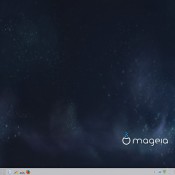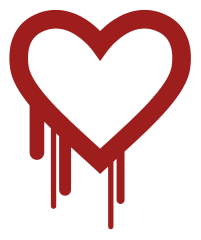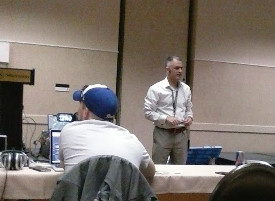
Christine Hall has been a journalist since 1971. In 2001, she began writing a weekly consumer computer column and started covering Linux and FOSS in 2002 after making the switch to GNU/Linux. Follow her on Twitter: @BrideOfLinux
Christine Hall has been a journalist since 1971. In 2001, she began writing a weekly consumer computer column and started covering Linux and FOSS in 2002 after making the switch to GNU/Linux. Follow her on Twitter: @BrideOfLinux

Christine Hall has been a journalist since 1971. In 2001, she began writing a weekly consumer computer column and started covering Linux and FOSS in 2002 after making the switch to GNU/Linux. Follow her on Twitter: @BrideOfLinux
Now that Microsoft has been pretty much neutralized as a threat, who’s next on the list to be free tech’s “public enemy number one?”
Oracle? While it’s true that the company is more thuggish than Redmond ever dreamed of being, Oracle has never really been a threat to anyone but the database and high finance crowds. Also, the company’s recent financials indicate the company, like Microsoft, isn’t what it used to be.
 Apple? So long as it continues to be an overpriced walled garden, it’s not likely to pose much of a threat. It’ll always be held in disdain by free tech folks, but always in the number two position because it’s easily ignored.
Apple? So long as it continues to be an overpriced walled garden, it’s not likely to pose much of a threat. It’ll always be held in disdain by free tech folks, but always in the number two position because it’s easily ignored.
My guess is that the company poised to win the most-hated-in-free-tech prize is Google.
Christine Hall has been a journalist since 1971. In 2001, she began writing a weekly consumer computer column and started covering Linux and FOSS in 2002 after making the switch to GNU/Linux. Follow her on Twitter: @BrideOfLinux
Admin, News, Operating Systems and Security
Poor Microsoft. The beleaguered company just can’t catch a break. We’ve already told you about how Snowden’s revelations have forced the pride of Redmond to spend who knows how many millions opening two “transparency centers” to allow government IT experts to pore through source code to prove there’s no back doors baked into Windows or other Microsoft products. Trouble is, while its engineers have been busy plastering over all traces of old back doors, they’ve left a side door standing wide open, waiting to be exploited.
 Ironically, this side door is intended to be a security door for third party add-ons that every Windows machine needs to keep it safe from cracker hackers — if that’s indeed possible. And this security tool is usually more trusted by Microsoft system admins, especially those outside the U.S., than Windows itself.
Ironically, this side door is intended to be a security door for third party add-ons that every Windows machine needs to keep it safe from cracker hackers — if that’s indeed possible. And this security tool is usually more trusted by Microsoft system admins, especially those outside the U.S., than Windows itself.
Christine Hall has been a journalist since 1971. In 2001, she began writing a weekly consumer computer column and started covering Linux and FOSS in 2002 after making the switch to GNU/Linux. Follow her on Twitter: @BrideOfLinux
 Mageia 5, released on Friday and over a year in the making, is familiar territory to those of us who cut our Linux teeth on Mandriva back in the days when it was called Mandrake. That’s not to say that the distro is old or outdated, far from it, but any Mandrake old-timer will instantly recognize the roots of this distro.
Mageia 5, released on Friday and over a year in the making, is familiar territory to those of us who cut our Linux teeth on Mandriva back in the days when it was called Mandrake. That’s not to say that the distro is old or outdated, far from it, but any Mandrake old-timer will instantly recognize the roots of this distro.
Christine Hall has been a journalist since 1971. In 2001, she began writing a weekly consumer computer column and started covering Linux and FOSS in 2002 after making the switch to GNU/Linux. Follow her on Twitter: @BrideOfLinux
 FOSS Force has learned that Mageia will soon officially announce the release of the stable version of Mageia 5, most likely later today. According to a source within the organization, the ISO images were pushed to the distro’s main mirror at about 7 P.M. EST yesterday. According to our source, the developers are now just waiting for the images to be available on all mirrors before making the official announcement.
FOSS Force has learned that Mageia will soon officially announce the release of the stable version of Mageia 5, most likely later today. According to a source within the organization, the ISO images were pushed to the distro’s main mirror at about 7 P.M. EST yesterday. According to our source, the developers are now just waiting for the images to be available on all mirrors before making the official announcement.
Here at FOSS Force, we’ve found Mageia 5 available for download at The Linux Kernel Archives. 32 and 64 bit downloads are available for both the GNOME and KDE4 desktops, in both CD and DVD formats. We are in the process of downloading the 32 bit “live CD” image of the distro with KDE and plan to have screenshots and a review in the next couple of days.
Christine Hall has been a journalist since 1971. In 2001, she began writing a weekly consumer computer column and started covering Linux and FOSS in 2002 after making the switch to GNU/Linux. Follow her on Twitter: @BrideOfLinux
It appears as if much of the open source infrastructure we depend on is suffering from neglect. That’s the message brought to the SouthEast LinuxFest (SELF) by David Nalley. Listening to his talk, “The Tragedy of Open Source,” it was hard not to think that some of our infrastructure projects are beginning to resemble some disintegrating municipal water and sewer systems, or maybe compare his examples with our crumbling roads and bridges. Nalley is a South Carolina based “recovering sysadmin” who now wears many hats at Apache as well as being an employee at Citrix.
 The neglect he mentions has caused more than a few near misses that fell inches short of disaster, with two major incidents happening last year alone.
The neglect he mentions has caused more than a few near misses that fell inches short of disaster, with two major incidents happening last year alone.
Take the Heartbleed vulnerability that affected openSSL. Nalley points out that last year when the bug was discovered, there was only one person, earning a mere twenty grand a year, actively maintaining the openSSL project. Also last year, there was only one person maintaining bash when Shellshock was discovered.
Christine Hall has been a journalist since 1971. In 2001, she began writing a weekly consumer computer column and started covering Linux and FOSS in 2002 after making the switch to GNU/Linux. Follow her on Twitter: @BrideOfLinux

The Sunday Times article, with the headline “British Spies Betrayed to Russian and Chinese,” carries the byline of Tom Harper, Richard Kerbaj and Tim Shipman and expands on a news story spreading across the UK on the pulling of some intelligence operators from Russia and China by the UK government over fears that they might have been compromised by information leaked by Edward Snowden.
Christine Hall has been a journalist since 1971. In 2001, she began writing a weekly consumer computer column and started covering Linux and FOSS in 2002 after making the switch to GNU/Linux. Follow her on Twitter: @BrideOfLinux
The SouthEast LinuxFest (SELF) was packed on Saturday, meaning that Jeremy Sands (who told me that day two is always much busier than opening day) knows SELF. Maybe I should’ve asked his advice when I was booking my room in Charlotte. Here’s what I learned on my own: There’s a big difference between a Red Roof and a Red Hat. The later is dependable. The former took three tries to get me into a room that was kinda/sorta what I’d reserved — with Wi-Fi that didn’t work more often than it did.

Francois Dion’s keynote, “Team Near Space Circus: Computing at 80,000 Feet” was nothing if not fascinating, and I was happy to get filled in on the details of a story I knew a little about because it happened in my backyard, meaning the Winston-Salem, N.C. area (in Mocksville, if you’re planning to take the test).
Christine Hall has been a journalist since 1971. In 2001, she began writing a weekly consumer computer column and started covering Linux and FOSS in 2002 after making the switch to GNU/Linux. Follow her on Twitter: @BrideOfLinux
Day one of this year’s SouthEast LinuxFest (SELF) was kind of slow, without the bone crushing crowds I expect to see at an open source conference. However, talking with the go-to person at SELF, Jeremy Sands, I understand that this is normal for this conference. It seems that Charlotte is a city with a strong work ethic, keeping the crowd away until the weekend. Still, nearly five hundred in attendance isn’t deserving of sneers — especially on a “slow” day.
 Somehow I managed to get up on time to make the hour and a half trip from my house to the Charlotte area in plenty of time for the 9 A.M. opening, groggy from only getting about three hours sleep, then wondered why I bothered arriving early. After all, the first presentation I planned to attend wasn’t until 11:30, and with no keynote address scheduled for Friday morning, that left me with a lot of time on my hands.
Somehow I managed to get up on time to make the hour and a half trip from my house to the Charlotte area in plenty of time for the 9 A.M. opening, groggy from only getting about three hours sleep, then wondered why I bothered arriving early. After all, the first presentation I planned to attend wasn’t until 11:30, and with no keynote address scheduled for Friday morning, that left me with a lot of time on my hands.
Christine Hall has been a journalist since 1971. In 2001, she began writing a weekly consumer computer column and started covering Linux and FOSS in 2002 after making the switch to GNU/Linux. Follow her on Twitter: @BrideOfLinux
If SourceForge were a person and I were the New York Times, I’d make certain I had an obituary on file right about now. It’s obvious that the once essential code repository for open source projects is terminally ill, although it’s just as obvious that Dice Holdings, which took over ownership of the site nearly three years ago, has no plans of letting SourceForge go gently into the good night, so we’ll probably see more kicking and noise-making until the lights are inevitably extinguished.
 Newer converts to open source probably don’t know much about the site, but it wasn’t long ago when Linux users were very aware of SourceForge and how to use the service, at least well enough to download software — perhaps more aware than they wanted to be. It was the go-to site when looking for a program not available in a particular distro’s repository. Not anymore. Not for a while. These days, the more important projects have either migrated to GitHub or are hosting their own.
Newer converts to open source probably don’t know much about the site, but it wasn’t long ago when Linux users were very aware of SourceForge and how to use the service, at least well enough to download software — perhaps more aware than they wanted to be. It was the go-to site when looking for a program not available in a particular distro’s repository. Not anymore. Not for a while. These days, the more important projects have either migrated to GitHub or are hosting their own.
Christine Hall has been a journalist since 1971. In 2001, she began writing a weekly consumer computer column and started covering Linux and FOSS in 2002 after making the switch to GNU/Linux. Follow her on Twitter: @BrideOfLinux